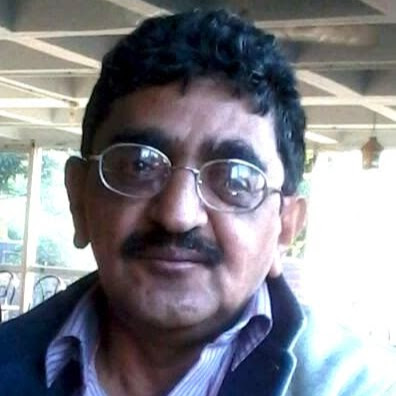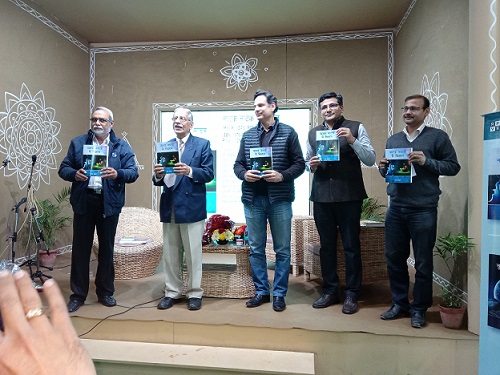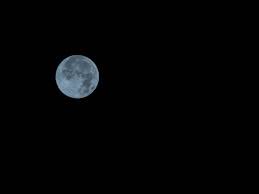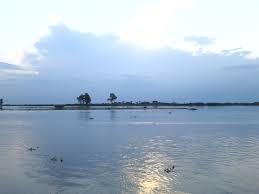The events on the penultimate day of the World Book Fair here weremarked by the release of a package of five popular science books published by Vigyan Prasar, an autonomous science communication arm of the Department of Science and Technology today.
The set of books included one penned by science journalist,Dinesh C.Sharma on his visit to the Arctic to report on climate change. Titled “Witness to the Meltdown”, it is in the form of a science travelogue describing the Circumpolar Flaw Lead experiment organised by University of Manitoba during the International Polar Year (2007-08). The author had spent 10 days on a Canadian icebreaker, Amundsen, in the Arctic witnessing the experiment.
“It was a lifetime experience for a science journalist to report from the ground zero of climate change, and see changes in melting ice sheets in the Arctic first hand,” Sharma said.
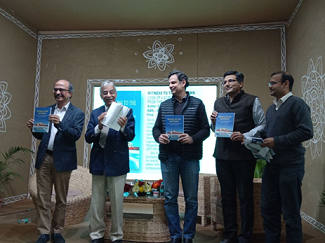
Book relese functin of Vigyan Prasar.
" It was a lifetime experience for a science journalist to report from the ground zero of climate change, and see changes in melting ice sheets in the Arctic first hand " :Science Journalist,Dinesh.C.Sharma said
The other books in the package included a book of essays on chemistry written by eminent chemistry teacher, Dr.S.V.Eswaran and a book on the story of universe from Big Bang to today authored by Govind Bhattacharjee.
Two new books are in Hindi - one is acollection ofscience fiction and the other is a collection of play scripts that could be enacted by school children and others to promote scientific temper. Mr.Ram Saran Das has authored the collection ofshort stories and Mr. DevendraMewadi has put together the play scripts.
Mr Chander Mohan, Director,Vigyan Prasar, who released the books at a function organised at the theme pavilion of the book fair, said books are an important vehicle of science communication and capable of engaging young audiences.
Earlier at a panel discussion on “climate change adaptation: is India ready?” organised as part of the book launch programme, Dr Mustafa Ali Khan (Team Leader, India Himalayas Climate Adaptation Programme), stressed that every section of society may it be individuals or communities or the administrations had a role to play inaddressing the problem of climate change.
Raman Mehta, Advisor, Vasudha Foundation, noted that some time impact of climate change may not be apparent. For instance, it may seem that there was no change in productivity of crops. But, a deeper analysis would show that the farmers had been using more inputs. Dinesh C. Sharma, who moderated the discussion, stressed that climate change was already impacting in many ways. (India Science Wire)
